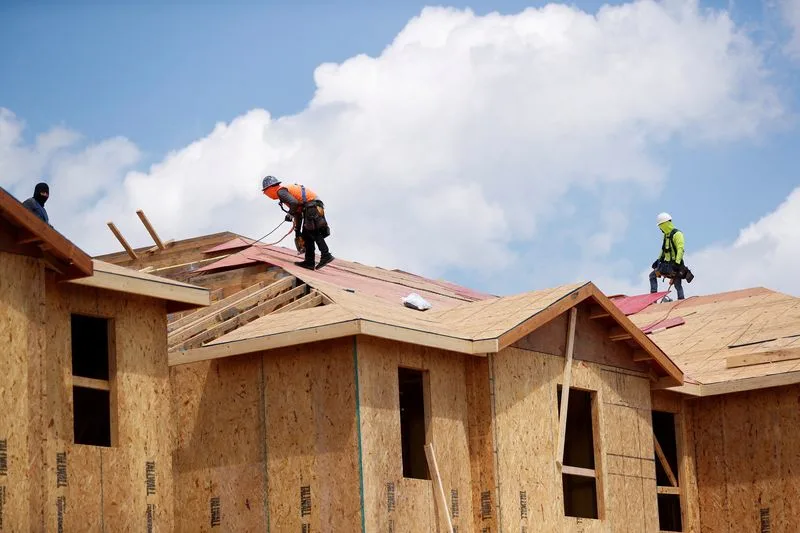According to a recent Reuters poll of property analysts, major economies facing housing crises will struggle to increase the supply of affordable homes in the coming years. The analysts stated that further government intervention is necessary to improve the situation.
Due to supply lags and expectations of interest rate cuts by top central banks, house prices in most major property markets are predicted to rise by over 4% this year. However, this appreciation is considered relatively modest as property values are already at very high levels.
Experts surveyed across various markets including the U.S., Canada, Britain, Germany, India, Australia, and New Zealand, revealed that the acute shortage of starter homes, which has been exacerbated by the COVID-19 pandemic, is unlikely to be resolved in the near future. This suggests that most new homebuyers will either have to stretch their budgets or wait even longer to save up enough for a down payment.
According to a survey of 97 analysts, 90 of them, or 93%, believe that the supply of affordable housing will not meet the demand. More than one-third of the analysts expect the demand to fall significantly short. On the other hand, the remaining seven analysts believe that the supply will exceed the demand, with none of them predicting a significant surplus.
Liam Bailey, the global head of research at Knight Frank, emphasized the importance of interest rate cuts in determining the future of housing prices. He stated that if there are no rate cuts this year, housing prices will come under pressure in the following year. Bailey also mentioned that there are limits to how much buyers can push prices, and we are approaching the affordability limits once again. The scarcity of housing stock in many markets is currently supporting the prices.
The issue of affordable housing is becoming more pressing as homelessness increases in developed countries. Private developers are mainly focusing on high-end construction rather than building basic housing for those in desperate need. This situation has led to growing calls for governments to take more action in addressing this issue.
According to a recent survey, 73% of analysts (67 out of 92) believe that governments should be more involved in improving affordability. The remaining analysts disagreed with this notion.
The survey also revealed that house prices are expected to continue rising in all seven major markets, except for Germany. Although these findings were similar to those from three months ago, analysts’ predictions were slightly more optimistic. However, interest rates are not expected to reach the record lows seen in recent times in any of these markets. As a result, expectations for price appreciation remain mostly in the low single digits.
In the United States, where the Federal Reserve is anticipated to lower rates at least once later this year, house prices are forecasted to increase by 5.0% and 3.3% in 2024 and 2025, respectively. This represents a slight improvement from the previous predictions of 3.3% and 3.0% made three months ago.
The appreciation in housing prices can be attributed to limited supply. Many existing homeowners who have 30-year loans with low mortgage rates from the pandemic era have no motivation to sell their homes and take on higher borrowing costs.
According to John LaForge, head of real asset strategy at Wells Fargo Investment Institute, the best hope for improving affordability in the next year lies in interest rates. However, it appears unlikely that we will see the four to six rate cuts from the Federal Reserve that most economists had previously anticipated.
In comparison to other markets, the majority of analysts in the U.S. believe that the government should not become more involved in addressing affordability issues.
Projections indicate that average home prices in the UK and Canada will increase by around 1.8% and 1.5% respectively this year, with further gains of approximately 3.0% expected in 2025.
There is an expectation that home prices in Australia and New Zealand will surpass overall inflation in the coming years. According to surveys, both countries are projected to experience a price growth of approximately 4%-5%.
In India, average house prices are predicted to increase by 6.0% this year and next. This rise is primarily driven by a select group of individuals in a country with a population of over 1.4 billion.
Ankita Sood, the director and head of research at REA India, stated that the upward trajectory of property prices is expected to continue due to consistent demand and limited supply. The demand for high-value properties from investors and high-income individuals is a key factor contributing to this upward trend.
